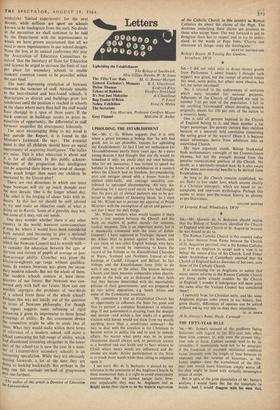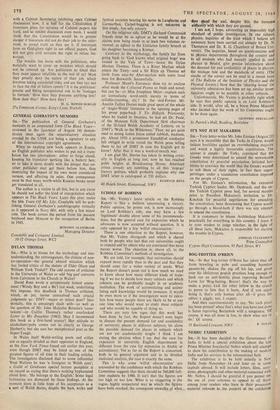THE FIFTY - YEAR RULE Sus.—Mr. James's account of the problems facing
historians with regard to the fifty-year rule offers them little comfort. If. with even the present fifty- year rule in force. Cabinet records tend to be in- scrutable; if memoranda tend not to be accurate; if the frankness of recorded ministerial comtnent varies inversely with the length of time between its utterance and the scrutiny of historians. as Mr. James implies—then the curtailment of the fifty- year rule woulct leave historians simply worse off, for they might be faced with virtually meaningless pieces of script.
, But in spite of the grim plausibility of Mr. James's analysis, I would leave this for the historians to decide. And I would disagree with his view that, with a Cabinet Secretariat inhibiting open Cabinet discussions now, it is bad for the Constitution if historians. press for scrutiny of Cabinet papers too hard, and so inhibit discussion even more. I would think that the Constitution would be in greater danger if historians did not do their job to the utter- most, to reveal truth as they see it. If historians have no God-given right to see official papers, God did not give civil servants the right to refuse his- torians.
The trouble lies more with the politicians, who naturally want to cover up mistakes which should not be covered up. Are politicians so timid that they must appear infallible to the rest of us? Must they prissily deny the nature of their job, which involves taking calculated risks, and are they too wet to face the risk of failure openly? It is the politicians' precise and fitting occupational risk to be 'hostages to fortune.' How dare they presume anything less! How dare they! How dare they!
M. G. BONNER-MORGAN



































 Previous page
Previous page